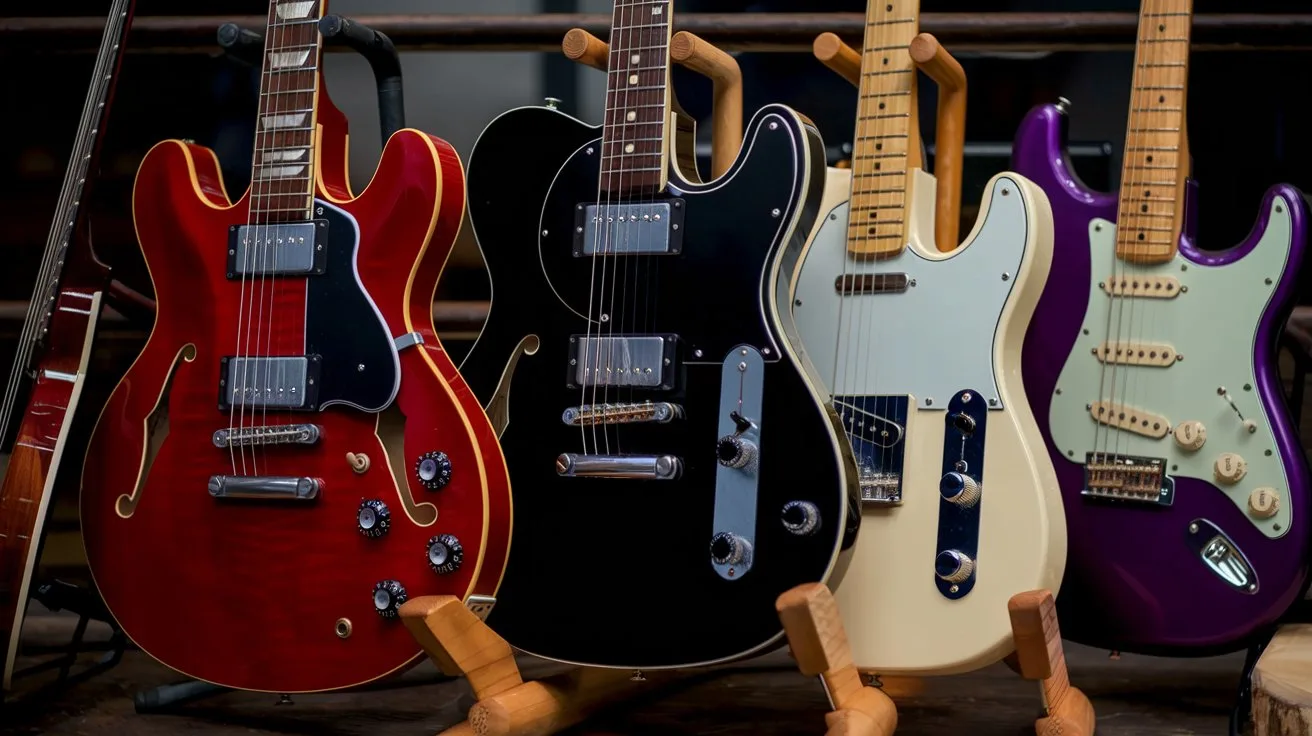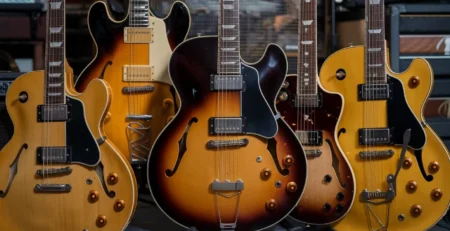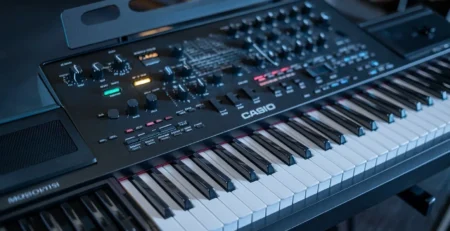Types of Electric Guitars: A Comprehensive Guide

Electric guitars have revolutionized the music industry, offering a wide range of tones and styles to suit every genre. Whether you’re a beginner exploring the world of music or a professional guitarist looking to refine your craft, understanding the different types of electric guitars is crucial to finding the right instrument for your needs. This comprehensive guide will walk you through the most popular types of electric guitars and their unique characteristics.
1. Solid-Body Electric Guitars
Solid-body guitars are the most common type of electric guitar, known for their versatility and durability. They are made from a solid piece of wood and have no soundholes, relying entirely on pickups and amplifiers to produce sound.
Key Features:
- Clear and consistent tone.
- Minimal feedback, ideal for high-gain music styles like rock and metal.
- Durable and less prone to damage.
Popular Models:
- Fender Stratocaster
- Gibson Les Paul
- Ibanez RG Series
Best For:
- Rock, metal, blues, and pop genres.
2. Hollow-Body Electric Guitars
Hollow-body guitars feature a fully hollow chamber, similar to acoustic guitars. They produce warm, resonant tones and are favored for their rich sound.
Key Features:
- Warm, mellow sound with natural resonance.
- Prone to feedback at high volumes.
- Lightweight and comfortable to play.
Popular Models:
- Gibson ES-175
- Gretsch White Falcon
- Epiphone Casino
Best For:
- Jazz, blues, and soft rock genres.
3. Semi-Hollow Body Electric Guitars
Semi-hollow body guitars combine the features of solid-body and hollow-body guitars, offering a balance of resonance and feedback control. They have a solid center block to reduce feedback.
Key Features:
- Balanced tone with added resonance.
- Reduced feedback compared to hollow-body guitars.
- Versatile for various music styles.
Popular Models:
- Gibson ES-335
- PRS SE Hollowbody
- Epiphone Dot
Best For:
- Jazz, blues, rock, and indie genres.
4. Extended Range Electric Guitars
Extended range guitars include 7-string, 8-string, or more, providing a broader tonal range for complex compositions and heavy music styles.
Key Features:
- Additional strings for extended bass or treble notes.
- Ideal for heavy and progressive music styles.
- Requires advanced playing techniques.
Popular Models:
- Ibanez RG Series (7-string)
- Schecter Hellraiser C-8 (8-string)
Best For:
- Metal, progressive rock, and experimental genres.
5. Baritone Electric Guitars
Baritone guitars have longer necks and are tuned to lower pitches, offering a deeper and more resonant sound.
Key Features:
- Longer scale length for lower tunings.
- Deep, rich tones ideal for heavy music styles.
Popular Models:
- Fender Baritone Telecaster
- Gretsch G5265 Jet Baritone
Best For:
- Metal, surf rock, and alternative genres.
6. Headless Electric Guitars
Headless guitars eliminate the headstock, offering a sleek, modern design and improved balance.
Key Features:
- Lightweight and portable.
- Better balance and tuning stability.
- Futuristic appearance.
Popular Models:
- Strandberg Boden Series
- Steinberger Spirit GT-Pro
Best For:
- Progressive rock, metal, and experimental genres.
Conclusion
Electric guitars come in a variety of shapes, sizes, and designs, each catering to specific styles and preferences. From the versatile solid-body to the resonant hollow-body, and from extended-range models to futuristic headless designs, there’s an electric guitar for every musician.
When choosing your next guitar, consider your playing style, the genre of music you prefer, and the features that matter most to you. With the right electric guitar, you can unlock your full musical potential and elevate your performances.
Explore the diverse range of electric guitars today and find the perfect one for your sound!
About admin
Related Posts

F Sharp Musical House: Pune’s Premier Destination for Musicians
Pune, known for its vibrant musical culture, is home to a gem for musicians—F Sharp Musical House. This one-stop music...
Acoustic Electric Guitars: The Best of Both Worlds
Acoustic electric guitars are the perfect blend of tradition and technology, offering the rich, resonant tones of an acoustic guitar...
Discover the Brilliance of the Casio CT-X9000IN Keyboard
The Casio CT-X9000IN is not just another keyboard; it’s a game-changer for musicians, especially those who love Indian music. With its advanced...
